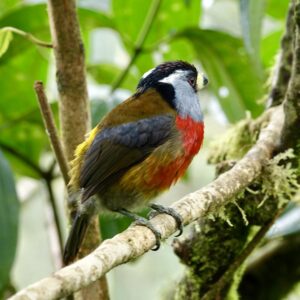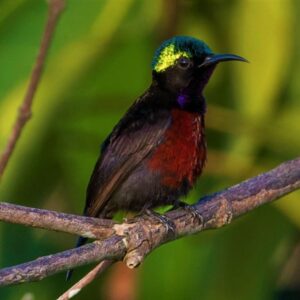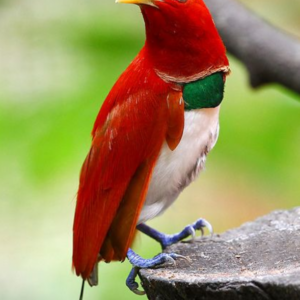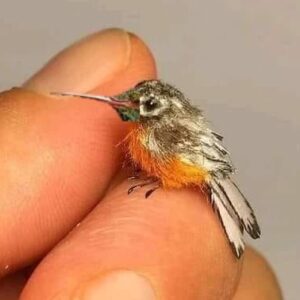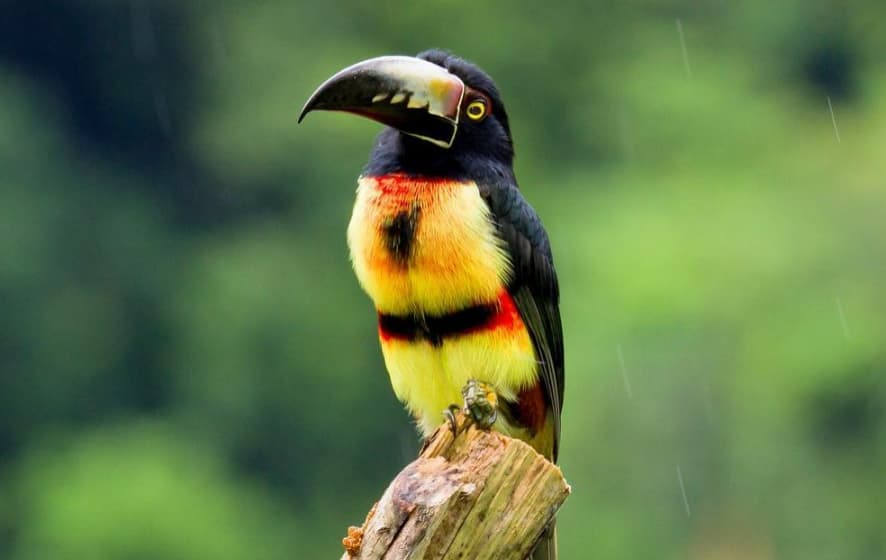

Within the lush rainforests of Central and South America, an avian gem exudes vibrant colors and exuberant charm—the Fiery-Billed Aracari (Pteroglossus frantzii).
With its radiant plumage, striking bill, and playful disposition, this tropical marvel captivates all who have the privilege of encountering it.
In this blog post, we embark on a journey to explore the captivating allure of the Fiery-Billed Aracari, delving into its breathtaking appearance, unique adaptations, and the significance it holds in the natural world.
A Kaleidoscope of Colors
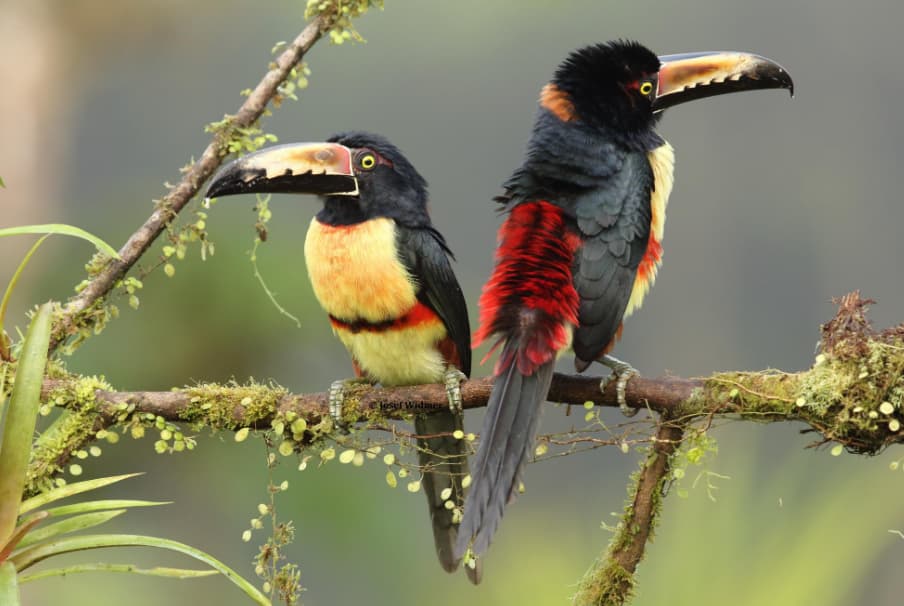

The Fiery-Billed Aracari is a visual spectacle, adorned with an array of brilliant colors that evoke the tropical splendor of its rainforest habitat. Its body is predominantly covered in glossy black feathers, providing a striking contrast to the vivid hues that adorn its head and neck. The most captivating feature of the Fiery-Billed Aracari is undoubtedly its bill—a fiery mix of vibrant orange, yellow, and red.This remarkable bill is not only a visual delight but also serves as a tool for feeding and communication.
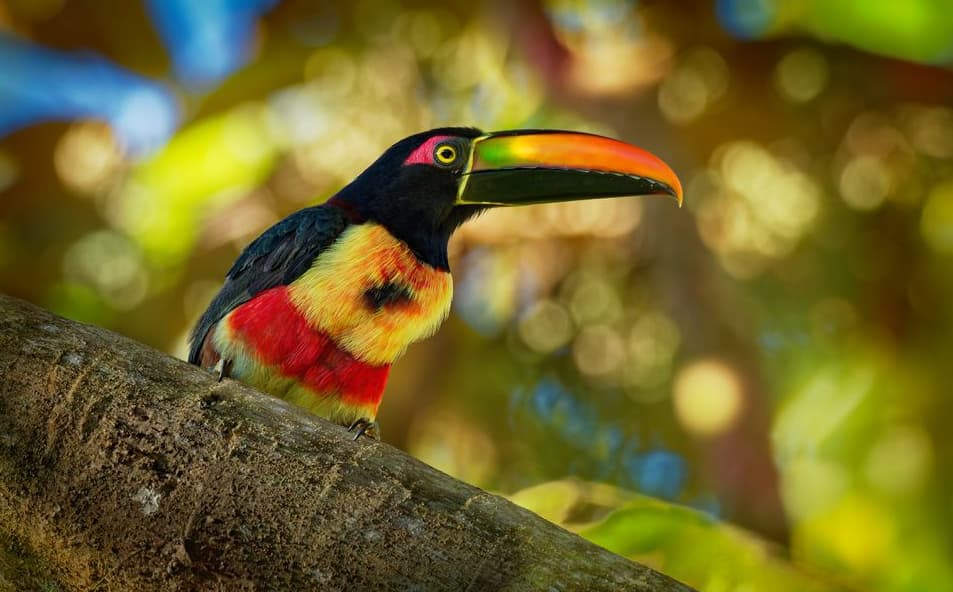

Further enhancing its allure, the Fiery-Billed Aracari showcases a vibrant plumage of blues, greens, and yellows on its back and wings. These iridescent colors shimmer in the dappled sunlight, creating a mesmerizing display as the aracari moves through the forest canopy. The combination of its brilliant bill and iridescent plumage make the Fiery-Billed Aracari a true embodiment of tropical beauty.
Unique Adaptations
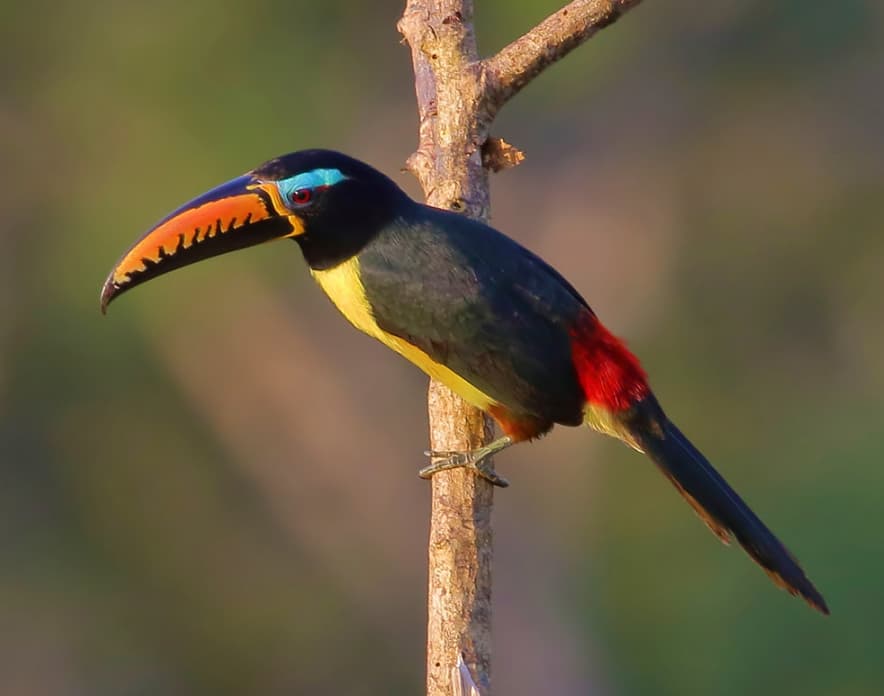

The Fiery-Billed Aracari possesses specialized adaptations that enable it to thrive in its rainforest habitat. Its bill, with its intricate, serrated edges, is a versatile tool for feeding. The aracari uses its bill to extract fruits, berries, and seeds from the forest canopy, while also occasionally feasting on insects and small vertebrates. This flexible and powerful bill allows the aracari to access a wide range of food sources, making it a valuable contributor to the rainforest ecosystem’s health and vitality.
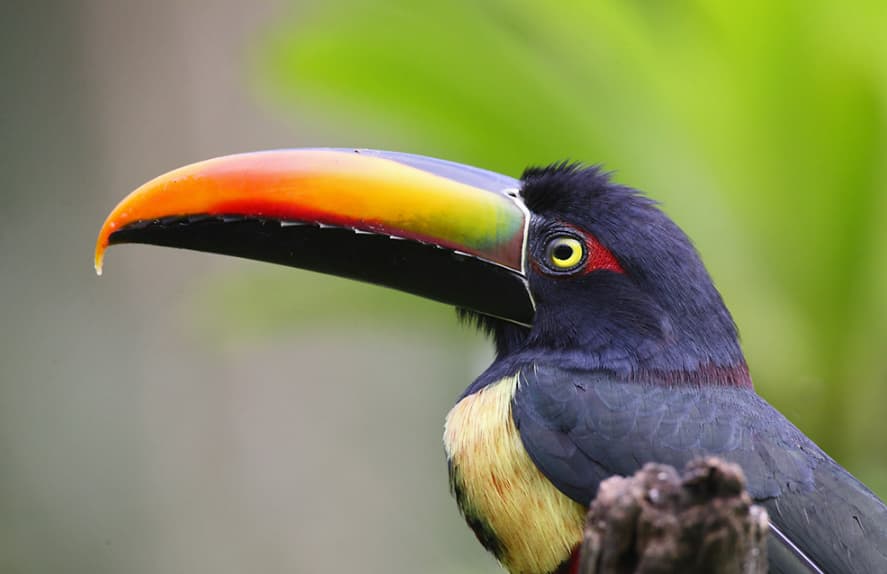
Furthermore, the Fiery-Billed Aracari possesses zygodactyl feet, meaning it has two toes facing forward and two facing backward. This unique foot structure provides exceptional grip and agility, enabling the aracari to effortlessly navigate the dense foliage and tree branches of its rainforest home. With its nimble movements and adept climbing skills, the aracari skillfully forages for food, while also evading potential predators.
Social Behaviors and Communication
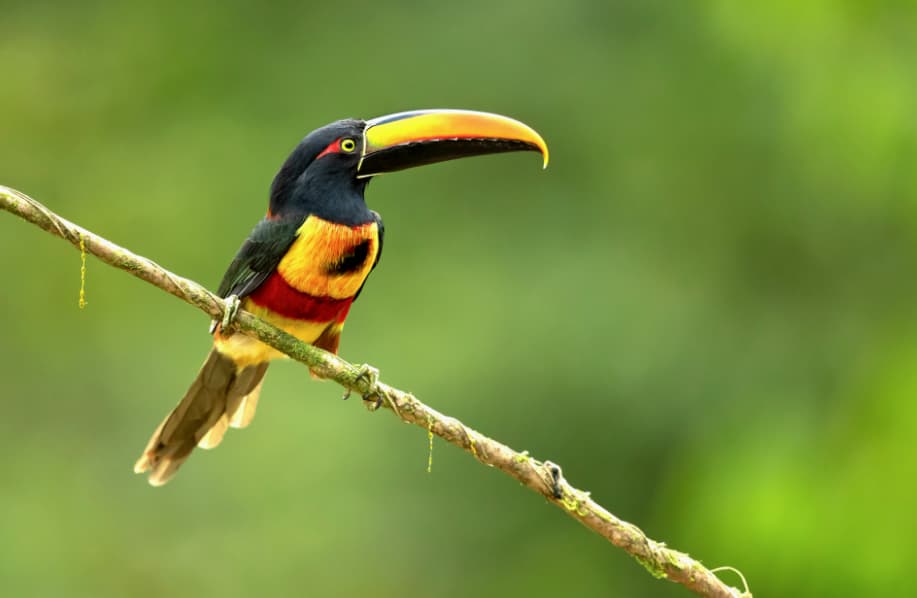

The Fiery-Billed Aracari is a highly social species, often seen in small family groups or flocks. These groups engage in playful interactions and vocalizations, exhibiting their social bonds and reinforcing their cooperative behaviors. They communicate through a variety of calls, including soft cooing sounds, chattering, and rapid trills, which serve to maintain group cohesion and alert others to potential threats or food sources.
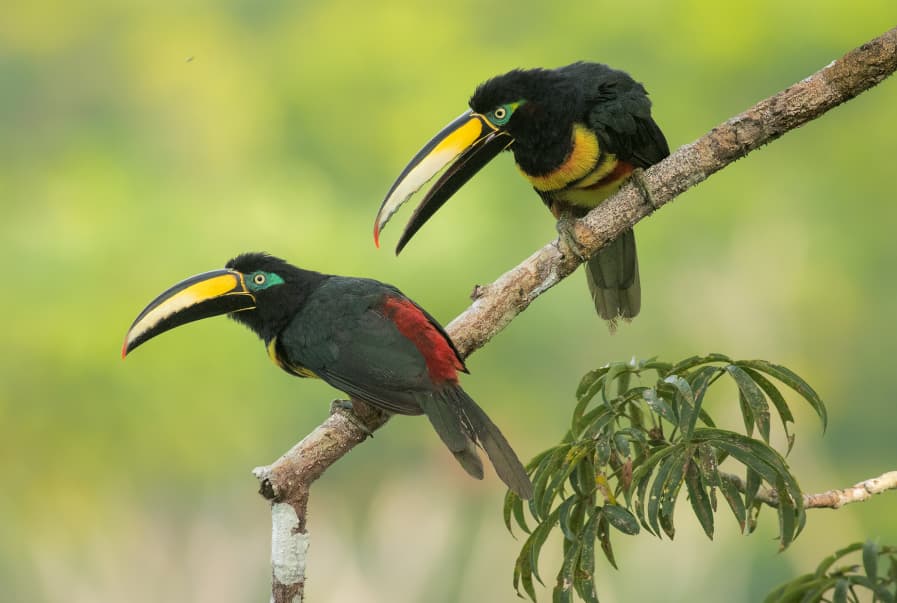

Breeding displays are a sight to behold in the Fiery-Billed Aracari’s world. Males engage in elaborate courtship rituals, involving bobbing motions, wing flapping, and bill displays. These displays serve to attract a potential mate and reinforce the pair bond. Once paired, the male and female work together to construct a nest cavity within a tree trunk, where the female lays her eggs and incubates them until they hatch.
Ecological Significance
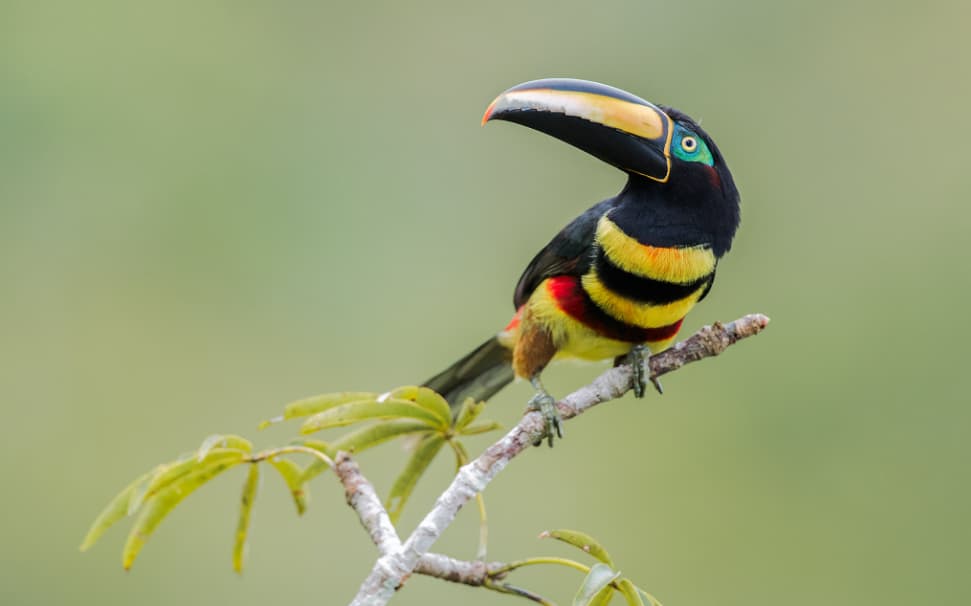

The Fiery-Billed Aracari plays a crucial role in the rainforest ecosystem as a seed disperser. As it feeds on fruits, it ingests seeds and excretes them in different locations, contributing to the forest’s regeneration and biodiversity. By dispersing seeds, the aracari facilitates the growth of diverse plant species and supports the overall health and resilience of the rainforest.
Conservation Considerations
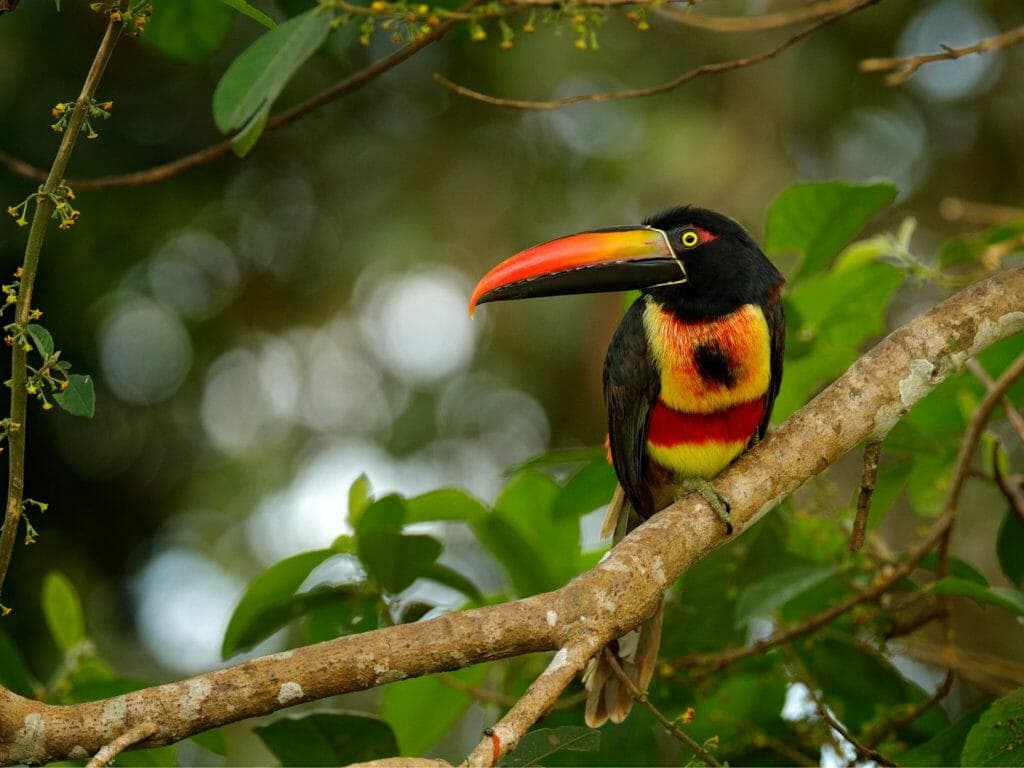

The Fiery-Billed Aracari faces threats due to habitat loss and fragmentation caused by deforestation and human activities.
The destruction of rainforest habitats not only disrupts the aracari’s population but also impacts the delicate balance of the ecosystem it inhabits. Conservation efforts are essential to protect the aracari’s habitat, raise awareness about its importance, and ensure its continued existence for future generations to appreciate.
Conclusion
The Fiery-Billed Aracari stands as a living testament to the vibrant beauty of the tropical rainforests it calls home. Its kaleidoscope of colors, remarkable bill, and playful nature make it a true spectacle of nature’s artistry. By cherishing and conserving this remarkable species, we safeguard the wonders of the rainforest ecosystem and preserve the irreplaceable beauty of the Fiery-Billed Aracari for generations to come. Let us embrace the vibrant spirit of this tropical marvel and work diligently to protect the habitats that foster its existence.
